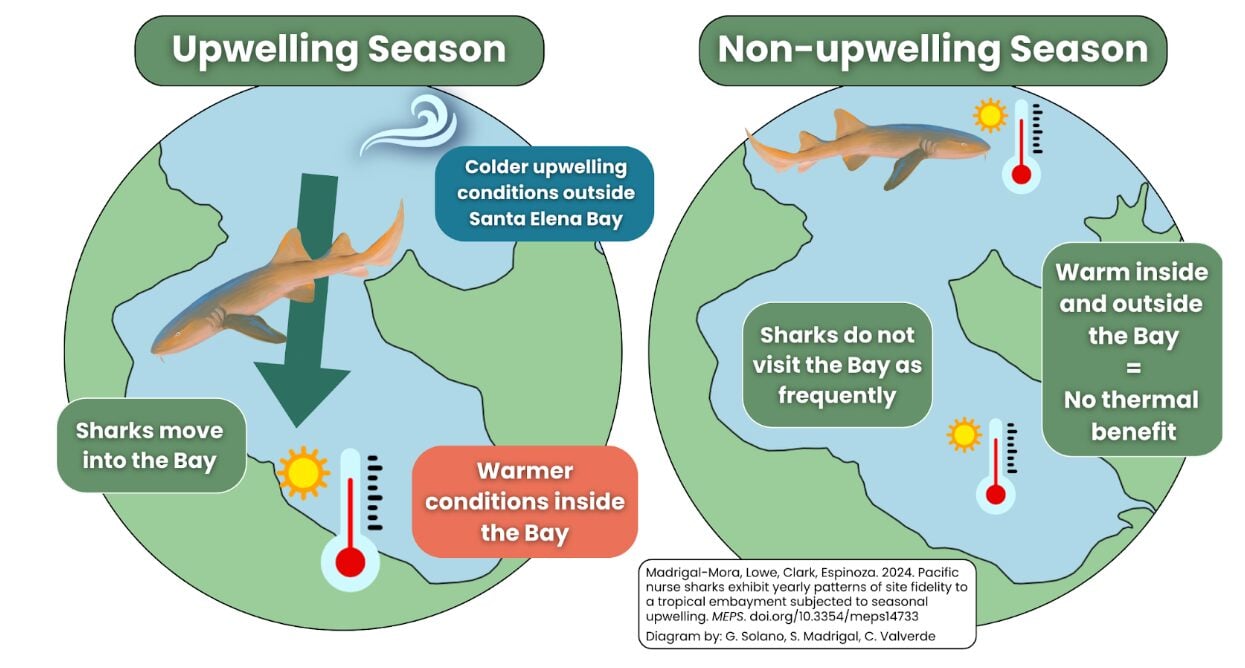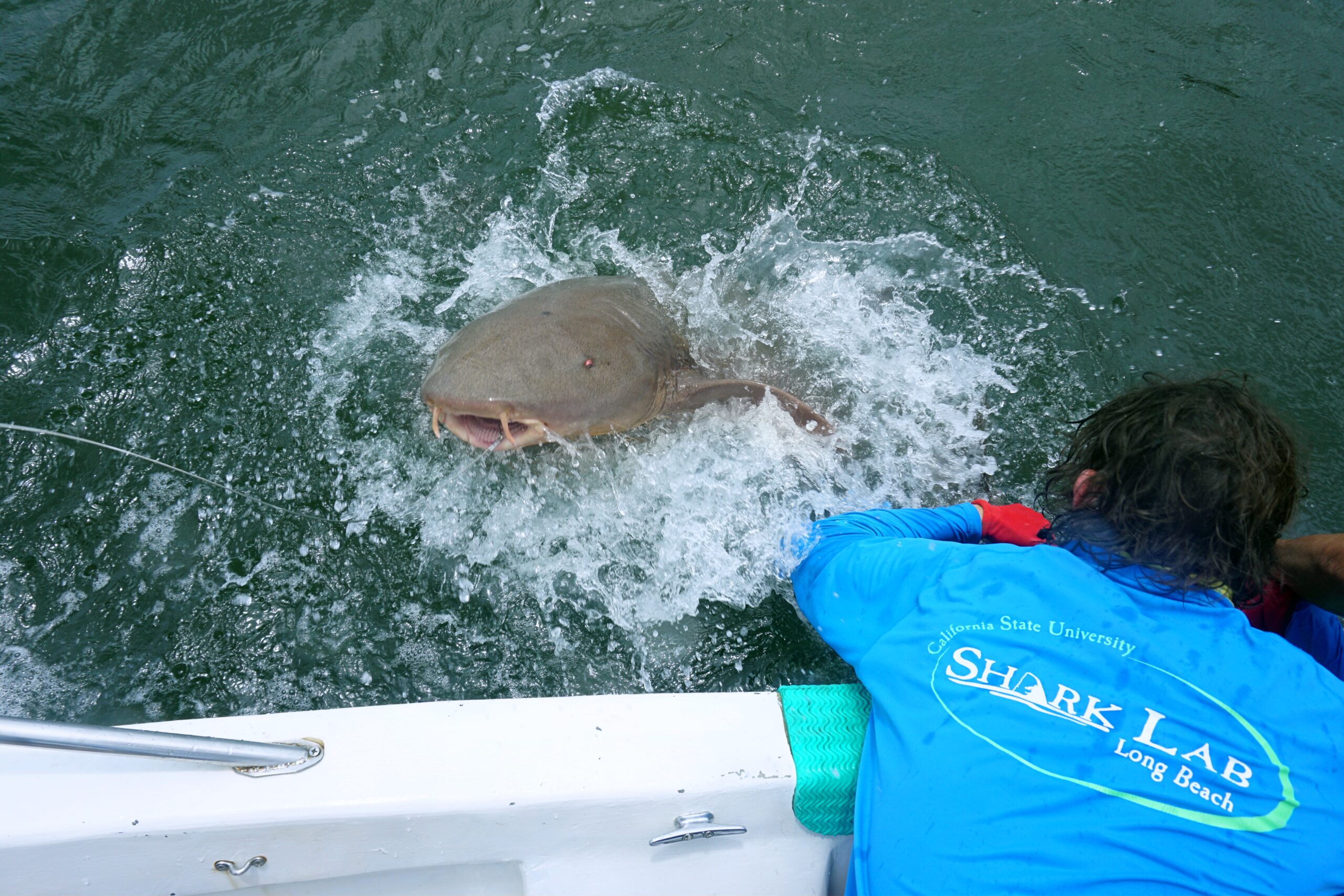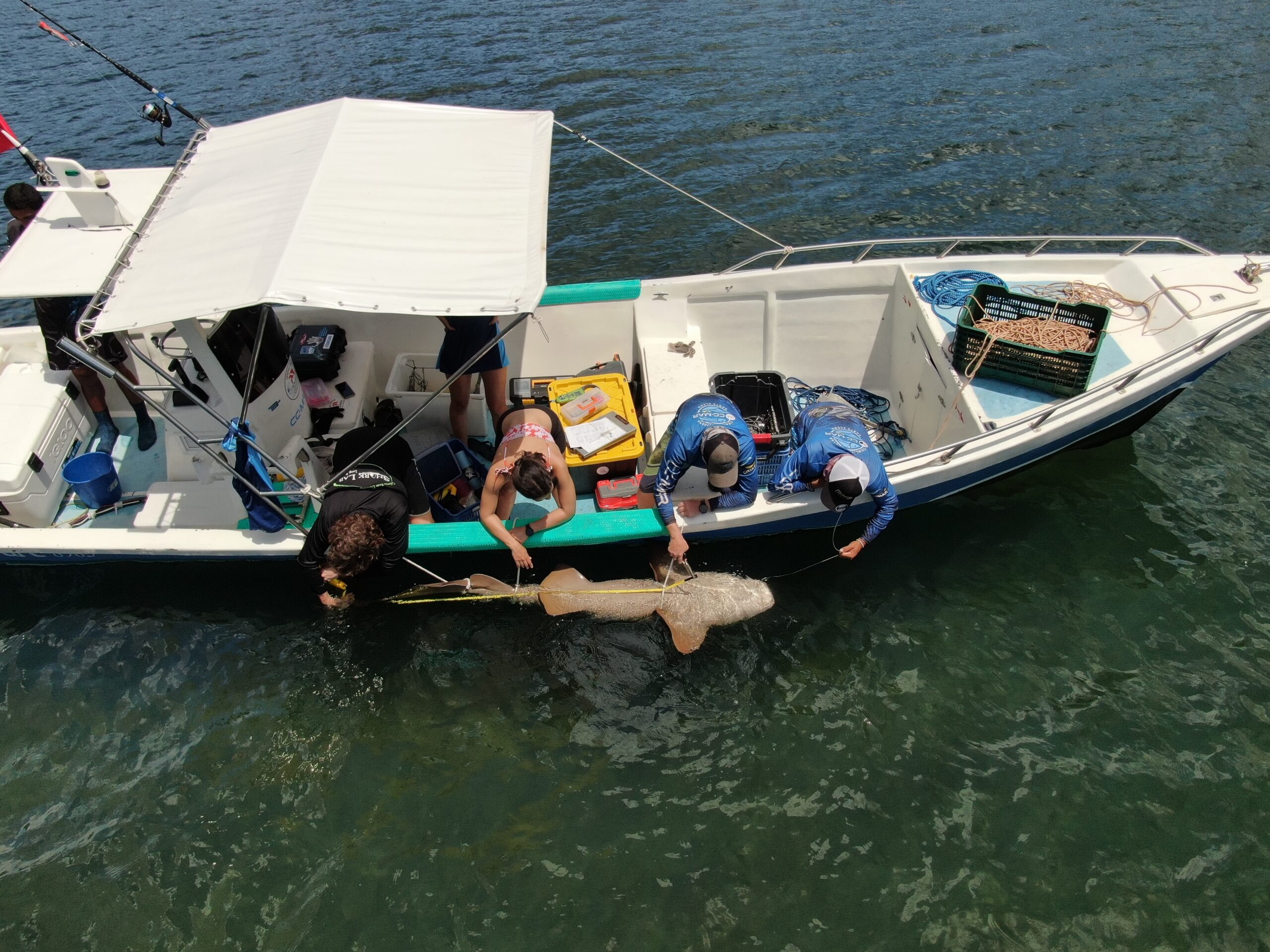Pacific nurse sharks don’t like the cold! Tracking shark movements in a seasonally changing environment
In most tropical ecosystems, species are accustomed to water temperatures that remain generally stable year-round. But in tropical upwelling regions like the north Pacific of Costa Rica, strengthened trade winds from December to April, bring deep cold waters up to the surface. This phenomenon, known as upwelling, causes water temperatures to plummet down to as low as 16°C —remarkably colder than the usual tropical warmth of 27-30 ºC. This sudden chill makes it necessary for some species, like the Pacific nurse shark (Ginglymostoma unami), to adapt to these changing conditions. The Pacific nurse shark is an endangered and poorly studied species that inhabit the tropical Pacific Coast of Latin America. Fortunately, the Costa Rican north Pacific offers a unique opportunity to study this species under minimal fishing pressure compared to other parts of their distribution. These conditions allow us to observe the natural behaviours of Pacific nurse sharks without significant human interference.

A visual summary of the results. Photo @ Sergio Madrigal-Mora
To better understand their movement patterns, we tracked 28 Pacific nurse sharks in Santa Elena Bay, a small, protected area in the north Pacific of Costa Rica. We learned that Pacific nurse sharks were most frequently found in the Bay during the upwelling season as these shallow waters offer a thermal refuge from the colder, upwelling-affected waters outside the Bay. These movements into Santa Elena Bay are a fascinating example of behavioural thermoregulation, where animals relocate to areas with optimal conditions to regulate their body temperature—much like how we move closer to a fireplace or snuggle under blankets when the weather is too cold. By seeking out warmer waters, the sharks ensure their bodies can function efficiently, even as the surrounding environment changes dramatically during upwelling events.

Project leader, Sergio Madrigal-Mora, attempting to capture a nurse shark for tagging. Photo © Andrés Herrera
This research is crucial as it offers baseline data to understand how Pacific nurse sharks, and possibly other sharks and rays, may respond to changing environmental conditions, including those brought on by climate change. With upwelling seasons expected to become longer and more intense, colder waters will reach upwelling regions more frequently, likely causing these sharks to seek refuge in Santa Elena Bay more often. Our research underscores the importance of protecting shallow bays in tropical upwelling regions, as they will become increasingly vital habitats for endangered species like Pacific nurse sharks in a changing climate.

Measuring a nurse shark’s total length after tagging and before release. Photo © Steven Lara
